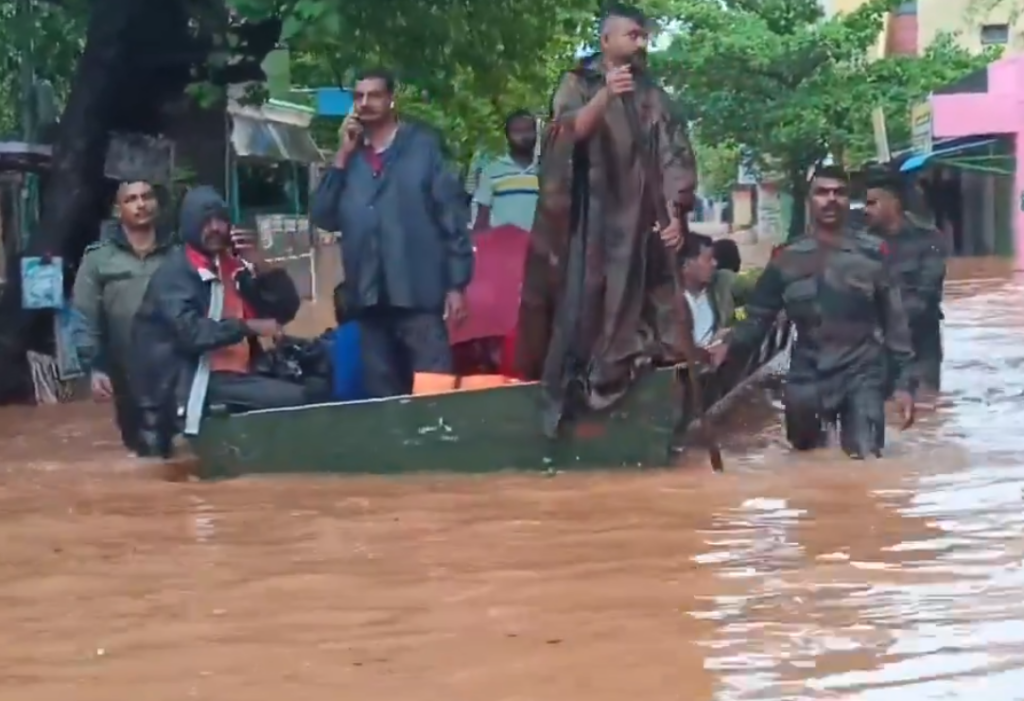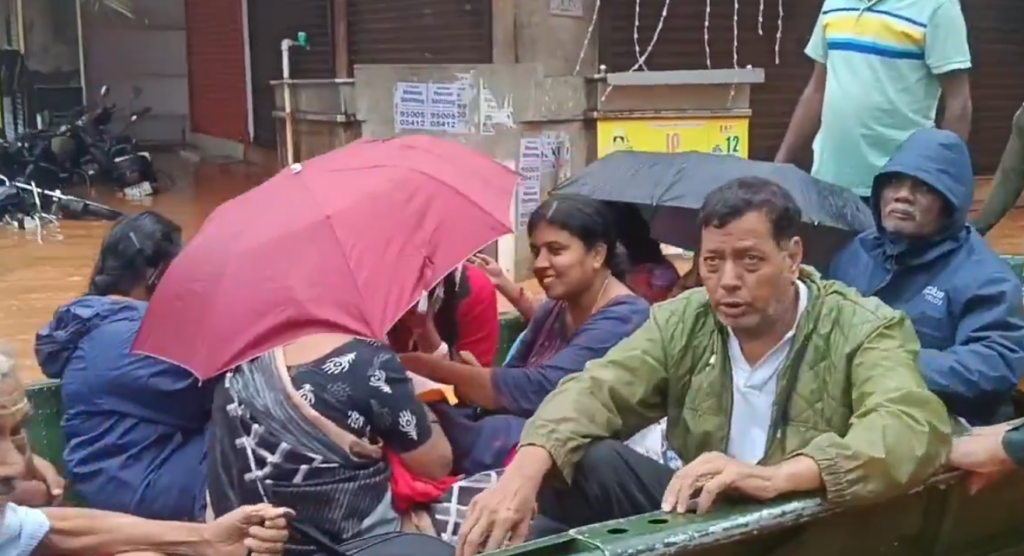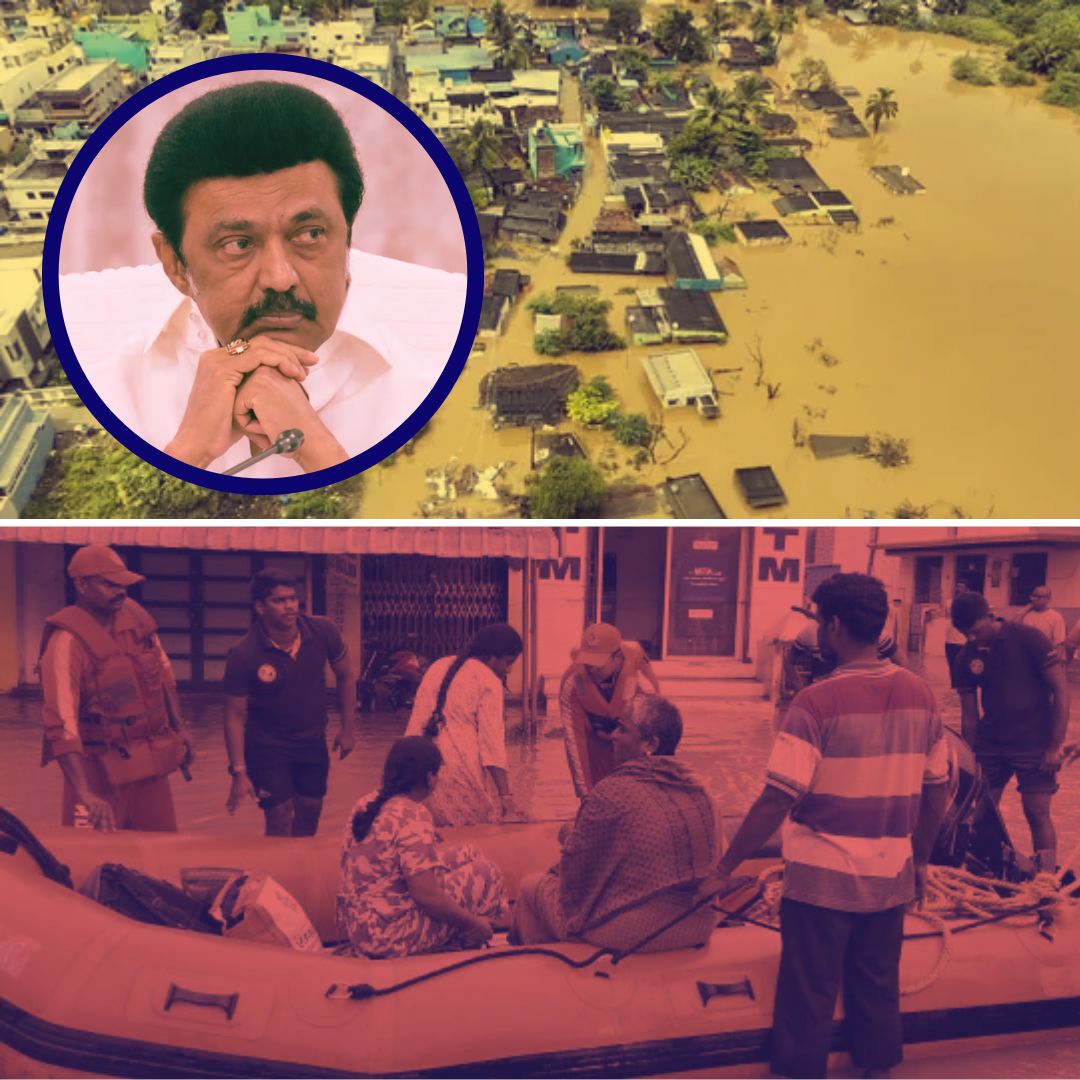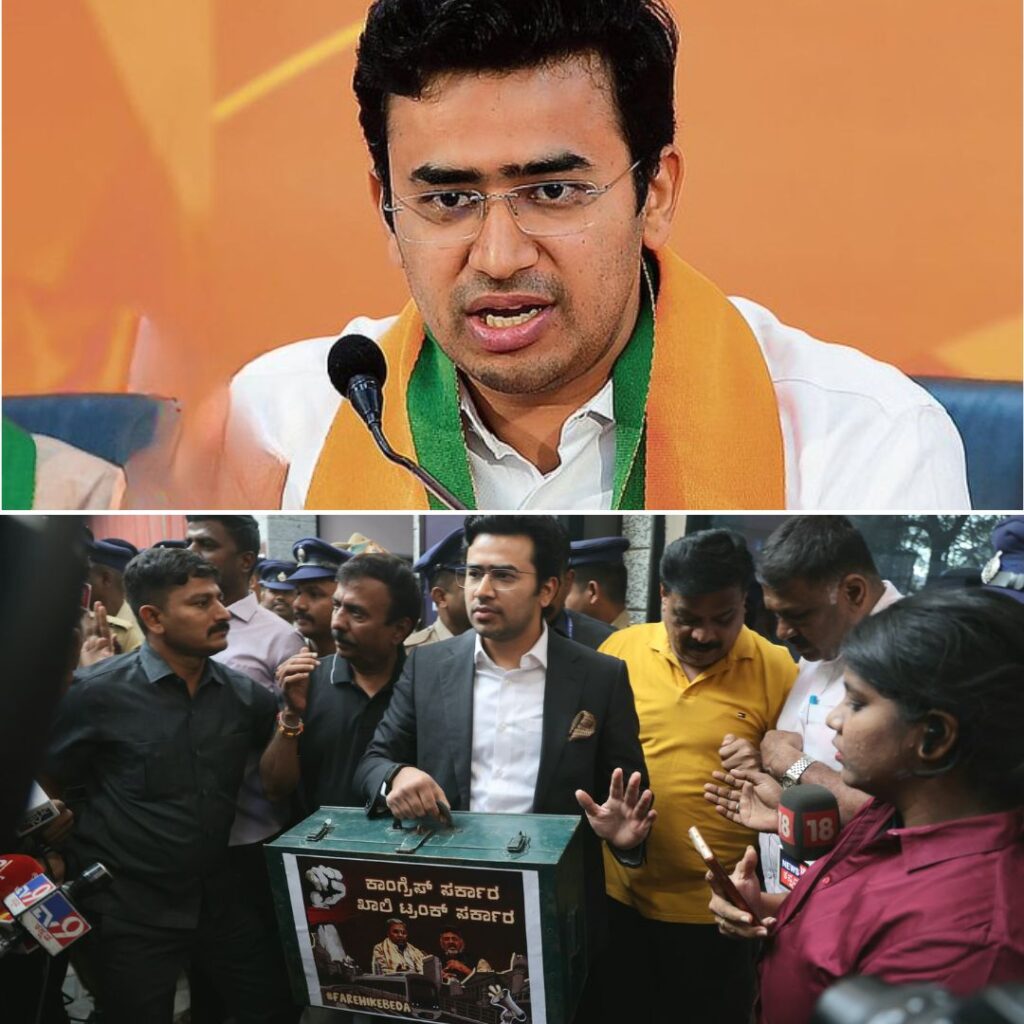Cyclone Fengal, which made landfall on November 30, has led to severe flooding and destruction across Tamil Nadu and Puducherry, resulting in 12 confirmed deaths and affecting over 15 million people. As the cyclone weakened, heavy rainfall continued, prompting Prime Minister Narendra Modi to assure Chief Minister MK Stalin of federal support. With Rs 2,000 crore requested for recovery efforts, rescue operations are ongoing, and schools have been closed in affected areas.

Continued Rainfall and Government Response
Despite weakening into a deep depression, Cyclone Fengal’s remnants are still causing heavy rainfall across Tamil Nadu and Puducherry. The Indian Meteorological Department (IMD) has issued yellow alerts for at least 15 districts, warning of continued adverse weather conditions. In light of the ongoing situation, PM Modi spoke with CM Stalin, promising all possible assistance to manage the flood crisis. “We are committed to supporting Tamil Nadu during this challenging time,” Modi stated. Meanwhile, local authorities have mobilised over 1.12 lakh first responders, including teams from the Indian Army and National Disaster Response Force (NDRF), to assist in rescue operations and evacuate stranded individuals.

Impact on Education and Daily Life
In response to the severe weather conditions, schools and colleges in Puducherry and several districts of Tamil Nadu, including Villupuram and Cuddalore, have been closed. The heavy rains have caused significant disruptions in daily life, with many residential areas submerged. Lieutenant Governor of Puducherry Kailashnathan reported record rainfall of 48.6 cm, stating that the drainage infrastructure was overwhelmed. “This has been one of the highest rainfalls in Puducherry,” he noted, highlighting the challenges faced by local authorities in managing the situation. In Chennai, although flooding was minimal due to proactive measures, flight operations at the international airport were briefly suspended before resuming later.

Historical Context and Unusual Cyclone Behaviour
Meteorologists have classified Cyclone Fengal as one of the slowest and most erratic cyclones to impact Tamil Nadu in over 50 years. The cyclone moved at an unusually slow pace of just 3 km/h, remaining stationary for extended periods after landfall, which contributed to unprecedented rainfall totals across the region. Experts noted that such behaviour is atypical for cyclones during this season, leading to severe flooding that affected both urban and rural areas. The IMD has warned that as Fengal’s remnants move westward towards the Arabian Sea, further rainfall could be expected in western Tamil Nadu and parts of Andhra Pradesh.
The Logical Indian’s Perspective
The devastation wrought by Cyclone Fengal serves as a stark reminder of the increasing intensity of weather events due to climate change. As communities band together to support those affected, it is essential for both state and central governments to respond promptly and effectively to mitigate future disasters. We must advocate for sustainable infrastructure improvements that can withstand such extreme weather conditions. How can we collectively ensure that our communities are better prepared for future challenges posed by climate change?













